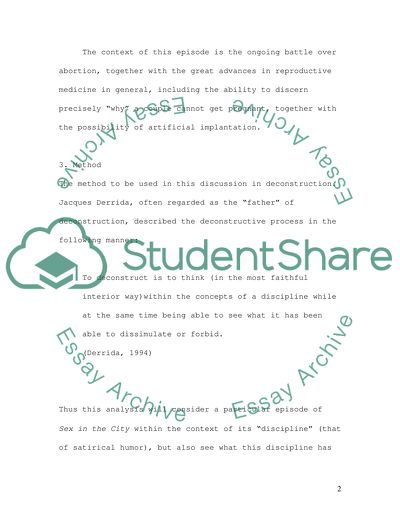Cite this document
(“A Deconstruction of an episode of Sex and the City Essay”, n.d.)
Retrieved from https://studentshare.org/miscellaneous/1524624-a-deconstruction-of-an-episode-of-sex-and-the-city
Retrieved from https://studentshare.org/miscellaneous/1524624-a-deconstruction-of-an-episode-of-sex-and-the-city
(A Deconstruction of an Episode of Sex and the City Essay)
https://studentshare.org/miscellaneous/1524624-a-deconstruction-of-an-episode-of-sex-and-the-city.
https://studentshare.org/miscellaneous/1524624-a-deconstruction-of-an-episode-of-sex-and-the-city.
“A Deconstruction of an Episode of Sex and the City Essay”, n.d. https://studentshare.org/miscellaneous/1524624-a-deconstruction-of-an-episode-of-sex-and-the-city.


